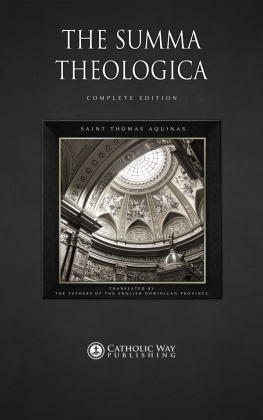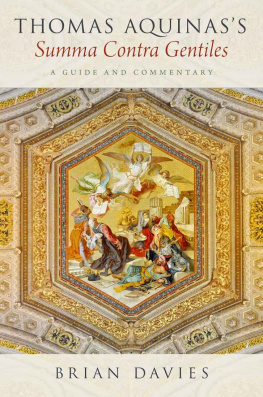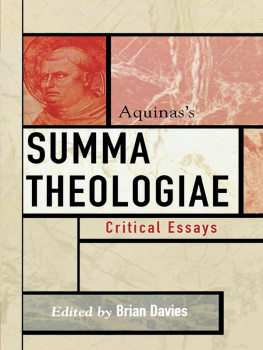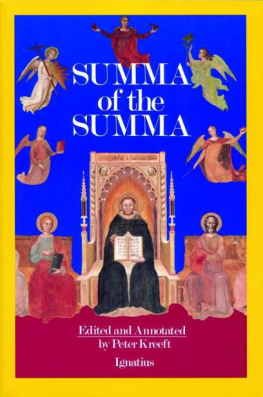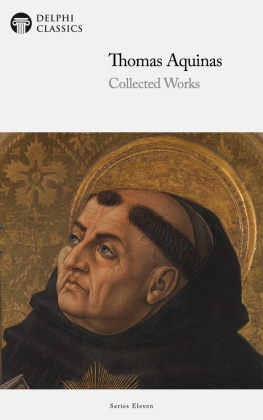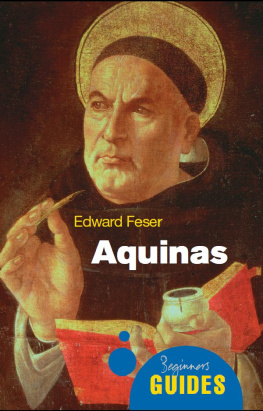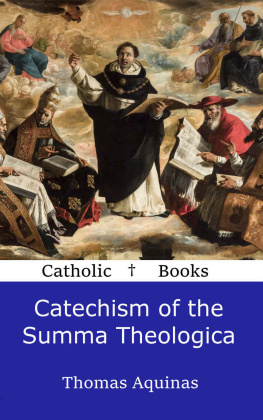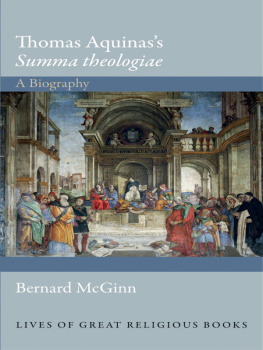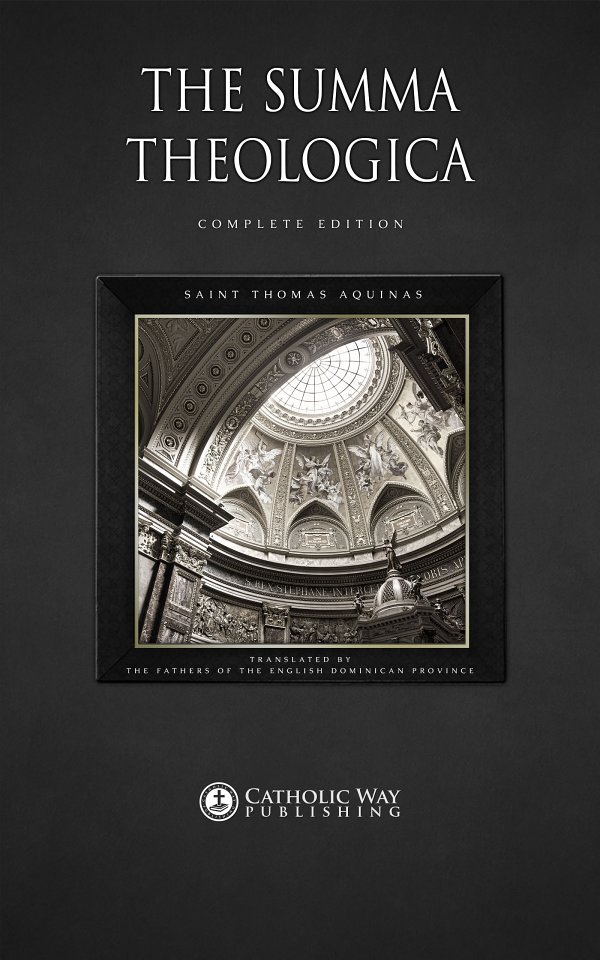St Thomas Aquinas - The Summa Theologica: Complete Edition
Here you can read online St Thomas Aquinas - The Summa Theologica: Complete Edition full text of the book (entire story) in english for free. Download pdf and epub, get meaning, cover and reviews about this ebook. year: 2014, publisher: Catholic Way Publishing, genre: Religion / Science. Description of the work, (preface) as well as reviews are available. Best literature library LitArk.com created for fans of good reading and offers a wide selection of genres:
Romance novel
Science fiction
Adventure
Detective
Science
History
Home and family
Prose
Art
Politics
Computer
Non-fiction
Religion
Business
Children
Humor
Choose a favorite category and find really read worthwhile books. Enjoy immersion in the world of imagination, feel the emotions of the characters or learn something new for yourself, make an fascinating discovery.
- Book:The Summa Theologica: Complete Edition
- Author:
- Publisher:Catholic Way Publishing
- Genre:
- Year:2014
- Rating:3 / 5
- Favourites:Add to favourites
- Your mark:
The Summa Theologica: Complete Edition: summary, description and annotation
We offer to read an annotation, description, summary or preface (depends on what the author of the book "The Summa Theologica: Complete Edition" wrote himself). If you haven't found the necessary information about the book — write in the comments, we will try to find it.
SAINT THOMAS AQUINAS
A Classic in Western Philosophy and the Catholic Church
Complete and Unabridged, contains the Complete Text and Supplements
Three Parts, 38 Tracts, 631 Questions, 3,000 Articles, 10,000 Objections and Answers
Over 2.5 Million words
Includes an Active Index and multiple Table of Contents to every Part, Question and Article
Includes Layered NCX Navigation
Includes Illustrations by Gustave Dore
The Summa Theologica, or Summary of Theology was written from 1265 to 1274. It is the greatest achievement of Saint Thomas Aquinas and one of the most influential works of Western literature and Philosophy. His influence on Western thought is considerable, and much of modern Philosophy was conceived as a reaction against, or as an agreement with, his ideas, particularly in the areas of Ethics, Natural Law, Metaphysics, and Political Theory.
It is intended as a manual for beginners in Theology and a Compendium of all of the main Theological teachings of the Roman Catholic Church. It presents the reasoning for almost all points of Christian Theology in the West. The book is famous, among other things, for its five arguments for the existence of God, the Quinque viae.
The Summa Theologicas topics follow a cycle: The Existence of God; Creation, Man; Mans Purpose; Christ; The Sacraments; and back to God.
The first part is on God. In it, he gives five proofs for Gods existence as well as an explication of His attributes. He argues for the actuality and incorporeality of God as the unmoved mover and describes how God moves through His thinking and willing.
The second part is on Ethics. Thomas argues for a variation of the Aristotelian Virtue Ethics. However, unlike Aristotle, he argues for a connection between the virtuous man and God by explaining how the virtuous act is one towards the blessedness of the Beatific Vision (beata visio).
The last part of the Summa is on Christ and was unfinished when Thomas died. In it, he shows how Christ not only offers salvation, but represents and protects humanity on Earth and in Heaven. This part also briefly discusses the sacraments and eschatology. The Summa remains the most influential of Thomass works.
Saint Thomas Aquinas was a Dominican Priest, born near Aquino, Sicily in 1225. He was an immensely influential Philosopher and Theologian in the tradition of Scholasticism, known as Doctor Angelicus. He died in 1274. As one of the 33 Doctors of the Church, he is considered the Churchs greatest Theologian and Philosopher. Thomas is held in the Catholic Church to be the model teacher for those studying for the priesthood. He was canonized in 1323.
PUBLISHER: CATHOLIC WAY PUBLISHING
St Thomas Aquinas: author's other books
Who wrote The Summa Theologica: Complete Edition? Find out the surname, the name of the author of the book and a list of all author's works by series.

